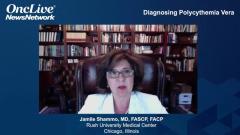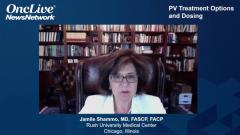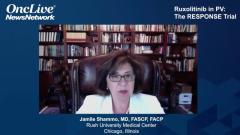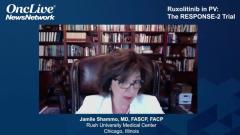
Treatment Approaches for Myelofibrosis
Pankit Vachhani, MD, comments on goals of therapy for patients with myelofibrosis and highlights traditional treatment approaches.
Episodes in this series

Pankit Vachhani, MD: For all patients, our No. 1 goal is to alleviate their symptoms. In addition to doing that, we also want to take notice of their blood counts, transfuse them, or maintain their hemoglobin or platelet levels so that they don’t run into excessive issues with cytopenias. We also take note of their white blood cell count and make sure they are not at risk of infections. In addition to alleviating symptoms and taking a look at their counts, one also wants to do physical examinations or radiologic exams to evaluate the spleen and spleen-directed symptoms. These are 3 things that would be crucial for every patient with myelofibrosis. Those who have high-risk or higher-risk myelofibrosis are generally considered as having intermediate-2 or high-risk myelofibrosis by IPSS [International Prognostic Scoring System] or DIPSS [Dynamic International Prognostic Scoring System]. For those patients, another thing on top of everything we spoke about before, is the consideration of allogeneic stem cell transplant eligibility. One wants to keep that in mind, assess the patient’s eligibility, and refer the patient for transplant early on.
The traditional treatment options in this space of myelofibrosis included drugs like hydroxyurea, interferon, occasionally busulfan, as well as splenic radiation and splenectomy. However, these are things of the past. For the last decade or so, we have been using JAK [Janus kinase]1 or JAK2 inhibitors—JAK inhibitors, more generally speaking. These have established themselves in the frontline space for the treatment of patients with myelofibrosis, especially patients who also have symptomatic splenomegaly, or a higher burden of symptoms, or higher-risk disease.
TRANSCRIPT EDITED FOR CLARITY
















































